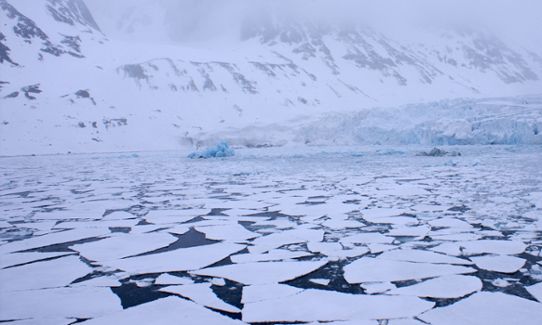Turning points (English. Critical points) refers to what are sometimes called threshold points, breaking points, or threshold effects. In climatology, it means a change in the Earth's system that leads to a shift in the climate system. Skipping tipping points or abrupt changes in the climate system as is the case today cannot be ruled out, and the risk increases with further warming. The most sensitive systems are likely to be the Greenland ice sheets and parts of West Antarctica, tropical coral reefs, and northern permafrost regions. Other tipping points include changes in large-scale ocean circulation or large-scale forest dieback.*
Passing tipping points could make it more difficult to halt the rise in global temperatures and could lead to significant risks to global and regional ecosystems and communities. Therefore, it is important to further understand tipping points, says Torben Koenigk, climate scientist and project manager at SMHI.
Increase understanding and contribution to new indicators
The research project in which SMHI will participate goes under the acronym TipESM (Exploring Tipping Points and Their Impacts Using Earth System Models) and is coordinated by the Danish Meteorological Institute (DMI). In total, there are 15 cooperation partners across Europe who will contribute their expertise in climate science and impact. The project will also include collaboration with the World Climate Research Program (WCRP) and the Future Earth Project (TIPMIP).
The project brings together the latest knowledge on tipping points and we will coordinate new climate system simulations undertaken by the international research community. Experts in different research fields will work together to better understand the regional consequences of crossing tipping points, says Torben Koenigk, climate scientist and SMHI project director.
Using knowledge from state-of-the-art models and observations of the Earth system, researchers will investigate the role of gradual climate change Tipping In individual ecosystems and communities, the impact of crossing tipping points on a given community, ecosystem and biodiversity. The researchers will also look at improvements to key processes in the models such as: ice sheets, vegetation and land use, permafrost, and biogeochemistry at sea and on land. At the end of the project, a tipping point risk register will be provided.
The project continues until 2027
SMHI mainly focuses on investigating a series of turning points, i.e. whether crossing one turning point can lead to another turning point. In addition, SMHI will examine the relationship between extremes and turning points. Whether extreme events can lead to tipping points, and how extremes change after the tipping point is passed, are two questions. In addition, SMHI will contribute to communication and dissemination activities.
The project ends in December 2027, and then the final results will be presented.

“Unapologetic writer. Bacon enthusiast. Introvert. Evil troublemaker. Friend of animals everywhere.”









More Stories
More than 100 Republicans rule: Trump is unfit | World
Summer in P1 with Margrethe Vestager
Huge asteroid approaching Earth | World